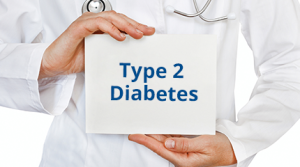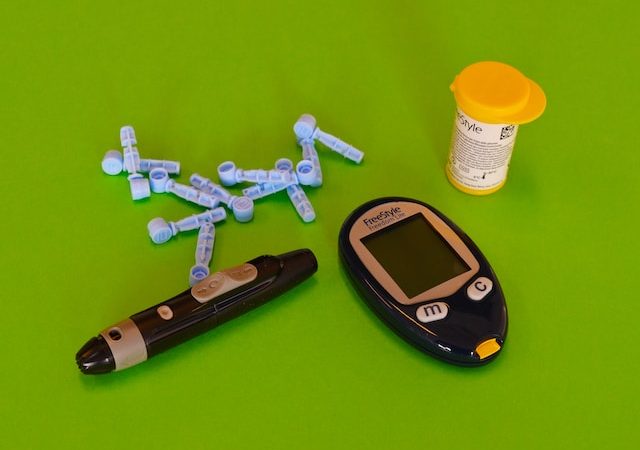Unveiling Diabetes: Dr. Anne L. Peters Exposes the Silent Symptoms You Shouldn’t Ignore Diabetes, a condition that affects millions worldwide, is often characterized by its silent onset. Dr. Anne L. Peters, a distinguished figure in the medical field, takes us on an insightful journey to detect diabetes by unraveling its silent symptoms. In this comprehensive
Unveiling Diabetes: Dr. Anne L. Peters Exposes the Silent Symptoms You Shouldn’t Ignore
Diabetes, a condition that affects millions worldwide, is often characterized by its silent onset. Dr. Anne L. Peters, a distinguished figure in the medical field, takes us on an insightful journey to detect diabetes by unraveling its silent symptoms. In this comprehensive guide, we explore the subtle signs that might slip under the radar, empowering individuals to recognize potential indicators for early intervention and improved health outcomes.
Understanding Diabetes:
To comprehend the silent symptoms, it’s crucial to grasp the basics of diabetes. Dr. Peters elucidates the different types of diabetes and how they impact the body’s ability to regulate blood sugar levels. Understanding this fundamental aspect sets the stage for recognizing and managing potential symptoms.

Image by: https://metabolicbariatric.com/en/type-2-diabetes
Unmasking Silent Symptoms:
Diabetes often operates in the shadows, revealing itself through subtle yet critical signs. Dr. Peters unveils these silent symptoms that should not be ignored. Increased thirst, frequent urination, unexplained weight loss, fatigue, blurred vision, and slow wound healing are among the indicators that warrant attention. By shedding light on these symptoms, Dr. Peters encourages individuals to stay vigilant and seek further evaluation if they notice these signs in themselves or others.
Recognizing Risk Factors:
Awareness of risk factors is key to understanding one’s susceptibility to diabetes. Dr. Peters explores genetic predisposition, sedentary lifestyles, and poor dietary habits as factors contributing to diabetes development. Recognizing these risk factors enables individuals to take proactive steps in managing their health and addressing potential symptoms early on.
Importance of Early Detection:
The significance of early detection cannot be overstated. Dr. Peters emphasizes how identifying symptoms promptly and seeking medical attention can prevent complications. Early detection allows for timely intervention, paving the way for effective management and an improved quality of life for those diagnosed with diabetes.
Screening and Diagnostic Tests:
Dr. Peters guides us through the screening and diagnostic tests crucial for detecting diabetes. From fasting plasma glucose (FPG) and oral glucose tolerance tests (OGTT) to glycated hemoglobin (A1C) tests, understanding these diagnostic tools provides individuals with insights into how healthcare professionals confirm diabetes and prediabetes. Knowledge of these tests empowers individuals to engage in informed discussions with their healthcare providers.
Lifestyle Modifications and Management:
Beyond diagnostics, lifestyle modifications play a pivotal role in managing diabetes. Dr. Peters discusses the importance of dietary changes, regular exercise, and weight management. Adopting a healthy lifestyle is a cornerstone in controlling blood sugar levels and mitigating the impact of diabetes on overall health. By understanding the role of lifestyle modifications, individuals can actively participate in their own well-being.
Seeking Professional Guidance:
In navigating the complexities of diabetes, Dr. Peters underscores the importance of seeking professional guidance. Regular check-ups, open communication with healthcare providers, and adherence to prescribed treatments or medications are integral aspects of managing diabetes effectively. By actively participating in their healthcare journey, individuals can collaborate with their healthcare team to create personalized strategies for diabetes management.
Table: Key Points on Detecting Diabetes
| Aspect | Key Points |
|---|---|
| Understanding Diabetes | – Different types of diabetes and their impact on blood sugar regulation.<br>- Fundamental knowledge for recognizing and managing potential symptoms. |
| Unmasking Silent Symptoms | – Increased thirst, frequent urination, unexplained weight loss, fatigue, blurred vision, and slow wound healing.<br>- Crucial indicators that may signal the presence of diabetes and require further evaluation. |
| Recognizing Risk Factors | – Genetic predisposition, sedentary lifestyles, and poor dietary habits.<br>- Identification of factors contributing to diabetes development and individual susceptibility. |
| Importance of Early Detection | – Timely identification of symptoms prevents complications.<br>- Early intervention for effective management and improved quality of life for those diagnosed with diabetes. |
| Screening and Diagnostic Tests | – Fasting plasma glucose (FPG), oral glucose tolerance tests (OGTT), and glycated hemoglobin (A1C).<br>- Diagnostic tools used by healthcare professionals to confirm diabetes and prediabetes. |
| Lifestyle Modifications | – Dietary changes, regular exercise, and weight management.<br>- Integral role in controlling blood sugar levels and mitigating the impact of diabetes on overall health. |
| Seeking Professional Guidance | – Regular check-ups, open communication with healthcare providers, and adherence to prescribed treatments or medications.<br>- Active participation in healthcare journey for effective diabetes management |
Conclusion:
In conclusion, Dr. Anne L. Peters’ guide to detecting diabetes unveils the silent symptoms that often go unnoticed. Through understanding the symptoms, risk factors, the importance of early detection, available tests, lifestyle modifications, and seeking professional guidance, individuals can take proactive steps toward managing diabetes.
Empowered with knowledge, individuals can navigate the landscape of diabetes detection confidently. Dr. Anne L. Peters’ comprehensive insights enable individuals to identify potential signs early, seek appropriate medical attention, and take control of their health for a brighter and healthier future. By unraveling the mysteries of diabetes, we can collectively work towards a world where early detection leads to improved outcomes and enhanced well-being.

















Leave a Comment
Your email address will not be published. Required fields are marked with *